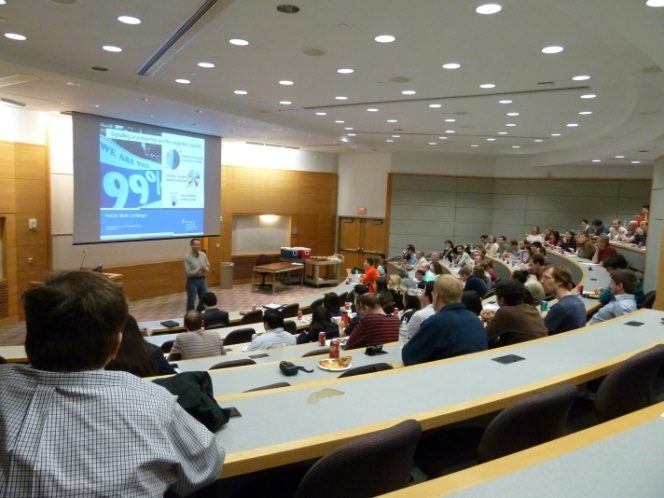07.-21.08.2020: Virtual Course “Computational methods to study protein structure and dynamics” (Hildebrand, Meiler, Smith, Moretti)
Syllabus – CPBP 8330 – Special Topics in Protein Biochemistry
COMPUTATIONAL METHODS TO STUDY PROTEIN STRUCTURE AND DYNAMICS
Course Description:
Biomolecules undergo constant motions and fluctuations in their native environment. Many of these motions are directly related to function: Channels have to open or close, transporters change their form to conduct molecules and receptors undergo conformational changes to transmit signals through membranes. Despite that obvious dynamics, biomolecules are still commonly considered as rigid entities that exist in one or only few states. This limitation largely prevents understanding of molecular events that are guided or even ruled by intrinsic flexibility such as ligand binding or protein-protein recognition. Molecular dynamics (MD) simulation is a well-established biophysical technique to simulate the time resolved motion of macromolecules at atomic resolution. It is a calculation intensive computational method based on physical principles, which regularly starts from the structure coordinates of biomolecules obtained from experimental techniques like X-ray crystallography, Single Particle Cryo-Electron Microscopy, NMR-spectroscopy or validated bioinformatics models. In this course you will get introduced to the basic principles of MD, learn how to setup MD simulations, how to analyze, visualize and interpret the outcome. As a prominent example of biomolecules where structural dynamics is important for function you will get introduced to the family of G protein coupled receptors (GPCRs). GPCRs exist in a manifold of different substates and states with limited lifetimes ranging from nanoseconds to milliseconds, respectively, with state specific properties for ligand binding and downstream signaling. The advantages and limitations of MD simulations will be discussed as well as the important role of MD simulations as an interdisciplinary technique. In addition, we will introduce Monte Carlo (MC) algorithms in the Rosetta software suite that can be leveraged to construct comparative models of proteins of unknown function as input for MD simulations.
Date and Time:
The class will meet on 6 days in the weeks of August 10th and August 17th always 9:00 a.m. -12:00 p.m. MWF. The laboratory portion will proceed on the same dates 1:00-4:00 p.m. The laboratory portion on August 7th is to sort out computational issues prior to the start of the course. Additionally, relevant, recent literature will be assigned for reading. This is a one credit course.
*Times subject to change due to remote-style teaching
Room:
Virtually via Zoom.
Registration:
Students who wish to take the class for credit should register as soon as possible! Students, postdocs, and faculty who wish to audit the class are welcome. Please send a note to Anett Albrecht ().

